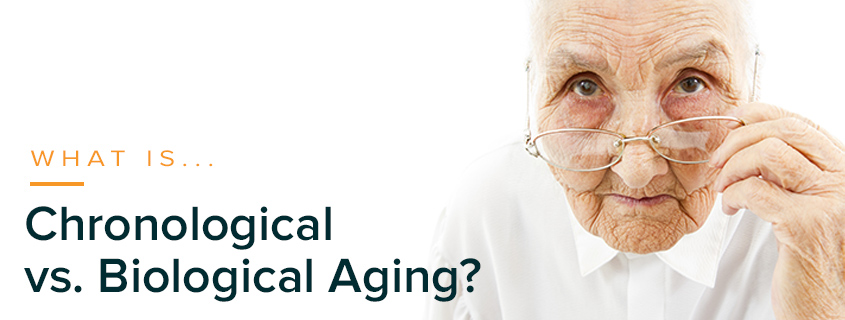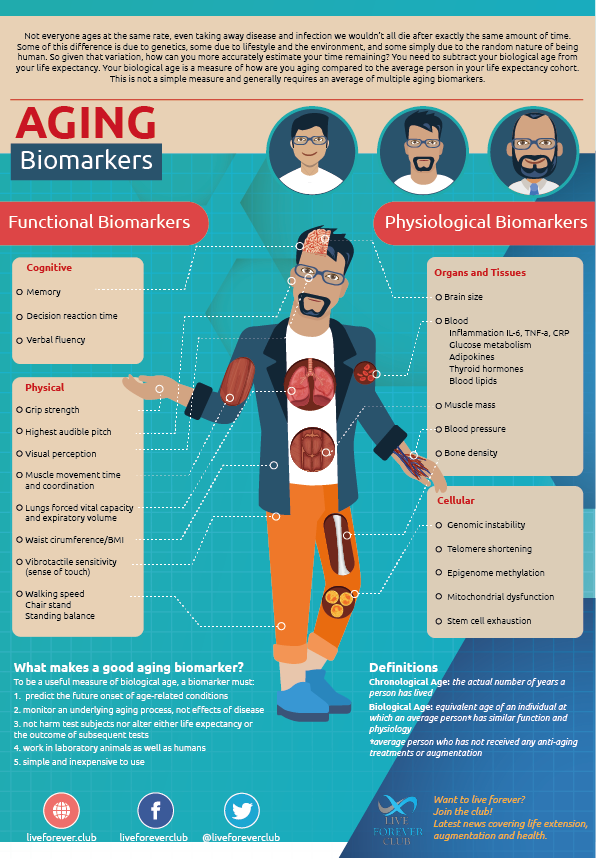

The NHS also runs its own “What’s your heart age?” test online.
Chronological age vs.biological age how to#
The “What’s my real age?” test on the BBC website – a spin-off from the How To Stay Young show - asks simple questions about your vegetable intake and exercise routine, while the Vitality Age test adds more detailed questions about your cholesterol and fasting glucose. The most accessible tests are basic questionnaires that compare your exercise routine, health and diet with age-related norms drawn from large population studies – and what those studies have revealed about general health and disease risk. “What people mean by biological age is comparing data about yourself with age-matched predictive values that reveal the state of your body relative to your peers and other age groups,” explains Jim Pate, a physiologist and lab manager at the Centre for Health and Human Performance, a company that focuses on preventing health issues and improving sports performance. But through health assessments and physiological analysis, it is possible to examine scientifically proven, age-related markers which provide authentic insights into your body’s health age. Without consensus, it is impossible to have one definitive biological age test.


The exact mechanisms of aging, known as senescence, remain unclear.Īcademics are divided between “programmed” theories, in which humans follow a biological timetable of genetic, hormonal and immunological decline, and “damage-related” theories, whereby environmental and lifestyle factors cause DNA damage, inflammation or oxidative stress which impairs cells. Knowing your biological age can help slash this risk, by verifying if you are aging well or inspiring you to rewind the clock. Research published in the US Proceedings Of The National Academy Of Sciences journal showed that young people of the same chronological age vary in their biological age long before midlife, with those with an “older” health age already suffering a decline in physical and cognitive performance. Obvious signs of a higher health age are excess body fat or muscle wastage, which trigger a premature risk of age-related problems like heart disease and impaired physical function.īut other markers of age-associated decline, from reduced lung capacity and heart health to low bone density and cognitive decline, are less visible – and if you have them, even if you have a relatively young calendar age, you’re more vulnerable to everything from diabetes and Alzheimer’s to osteoporosis. “You can see who is keeping healthy and who is aging early.” “You only have to look at school reunion photos to see that we don’t all age at the same rate,” says Sean Lerwill, a personal trainer with a degree in molecular genetics. What really matters, according to a growing number of health experts, is your “biological age” – how your body is functioning relative to your calendar age.Īlso known as “health age”, or sometimes more specifically as “heart age” or “fitness age”, this vital statistic can reveal if you have the health of a marathon-running, blueberry-eating teenager or a bed-bound 65-year-old pensioner. But it reveals surprisingly little about your personal health, fitness, vulnerability to injury and illness, or cognitive function.
Chronological age vs.biological age tv#
Your age influences many things about your life: your wage packet, insurance premiums, dating habits, even your TV tastes and holiday preferences.


 0 kommentar(er)
0 kommentar(er)
